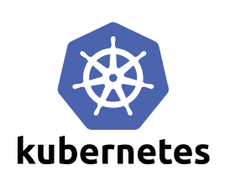Updates on technologies, trends, and tools
NEWS

Kubernetes 1.8 announced, final Ubuntu Desktop 17.10 Beta arrives, Linus Torvalds invites attackers to join the kernel community, Oracle donates Java EE to the Eclipse Foundation, and Microsoft is building a programming language for quantum computers.
Kubernetes 1.8 Announced
The Kubernetes community has announced the release of Kubernetes 1.8, which comes with many new features. Kubernetes, an implementation of the Borg system that Google runs internally to power its own clusters, has become one of the hottest open source projects and the de facto container management and orchestration tool.
This release is as much about the code as it is about technology. According to Kubernetes, "In addition to functional improvements, we're increasing project-wide focus on maturing process, formalizing architecture, and strengthening Kubernetes' governance model."
One of the highlights of this release is graduating role-based access control (RBAC) to a stable stage. RBAC allows admins to restrict system access to authorized users, adding another layer of security. In Kubernetes, RBAC allows cluster administrators to define roles dynamically to enforce access policies through the Kubernetes API.
[...]
Buy this article as PDF
(incl. VAT)
Buy Linux Magazine
Subscribe to our Linux Newsletters
Find Linux and Open Source Jobs
Subscribe to our ADMIN Newsletters
Support Our Work
Linux Magazine content is made possible with support from readers like you. Please consider contributing when you’ve found an article to be beneficial.

News
-
New Linux Botnet Discovered
The SSHStalker botnet uses IRC C2 to control systems via legacy Linux kernel exploits.
-
The Next Linux Kernel Turns 7.0
Linus Torvalds has announced that after Linux kernel 6.19, we'll finally reach the 7.0 iteration stage.
-
Linux From Scratch Drops SysVinit Support
LFS will no longer support SysVinit.
-
LibreOffice 26.2 Now Available
With new features, improvements, and bug fixes, LibreOffice 26.2 delivers a modern, polished office suite without compromise.
-
Linux Kernel Project Releases Project Continuity Document
What happens to Linux when there's no Linus? It's a question many of us have asked over the years, and it seems it's also on the minds of the Linux kernel project.
-
Mecha Systems Introduces Linux Handheld
Mecha Systems has revealed its Mecha Comet, a new handheld computer powered by – you guessed it – Linux.
-
MX Linux 25.1 Features Dual Init System ISO
The latest release of MX Linux caters to lovers of two different init systems and even offers instructions on how to transition.
-
Photoshop on Linux?
A developer has patched Wine so that it'll run specific versions of Photoshop that depend on Adobe Creative Cloud.
-
Linux Mint 22.3 Now Available with New Tools
Linux Mint 22.3 has been released with a pair of new tools for system admins and some pretty cool new features.
-
New Linux Malware Targets Cloud-Based Linux Installations
VoidLink, a new Linux malware, should be of real concern because of its stealth and customization.
